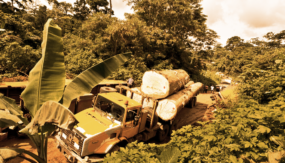Posted on 25 Aug 2021
Vietnamese children disappear from their homes and find themselves abandoned for days at an airport in France. Mass graves in Mexico are uncovered bearing the remains of people who had gone missing from their families. Bodies float to the surface of Colombia’s Rio Cauca. Trafficked Ugandan teenage girls are rescued in Kenya, with no idea of where they are or where they should be.
Such examples of disappearances have become a common denominator of organized crime and illicit economies the world over; they are the consequences of drug wars, illegal mining, arms smuggling and human trafficking. However, among the systemic obstacles obstructing successful investigations into cases of disappearances are corruption among state officials, lack of capacity and constrained resources in institutions, lack of transparency, barred access to information and the security risks inherent in undertaking such investigations. Meanwhile, the cases continue to mount.
Journalists can play a key role in the search for disappeared people, not only by reporting incidents but also by uncovering the roots of organized crime, which drives these disappearances. With this in mind, in 2020 the Resilience Fund partnered with the Global Investigative Journalism Network (GIJN) to develop a tool that can guide journalists around the world to investigate disappearances, often in the most marginalized communities.
The tool contains case studies in various formats, such as documentaries, news reports and podcasts; it lists relevant organizations that can provide support, and contains helpful guidelines. At the heart of the tool are substantive tips on the investigation process. Designed to guide journalists, and based on decades of experience, this new tool facilitates conscious reporting and inclusive awareness of security issues for all stakeholders involved, including sources and the affected communities.
About the GIJN
The Global Investigative Journalism Network is an international association of journalism organizations that support the training and sharing of information among investigative and data journalists – with special attention to those from repressive regimes and marginalized communities.
Find out more at https://gijn.org



